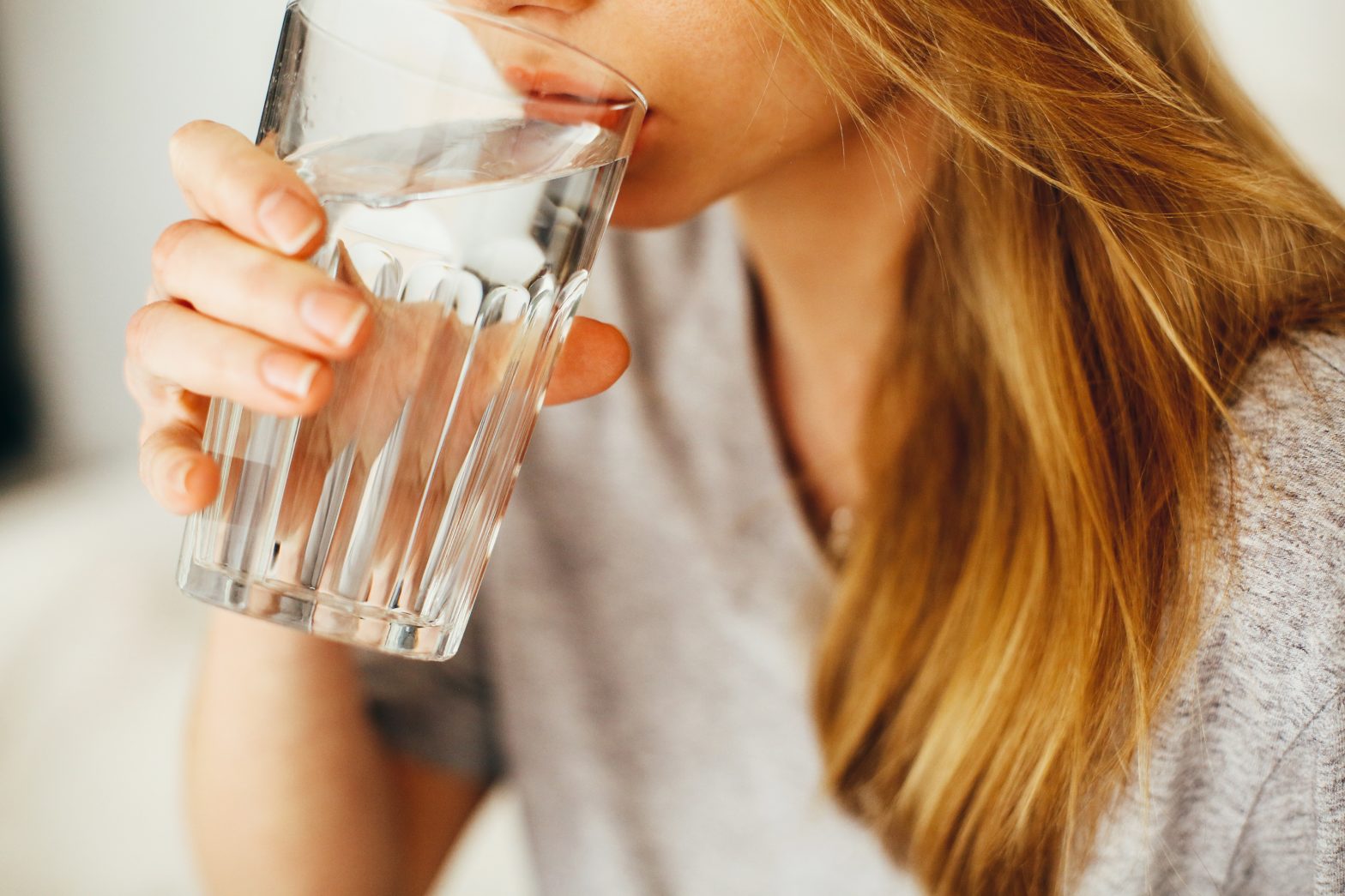With the sun beating down, a vital thing we need to focus on is…Hydration! Water makes up approximately 60% of adult body weight, and it is considered an essential nutrient because it must be obtained from sources outside the body. It is necessary for reactions in the body that involve nutrient digestion, absorption, transport, and metabolism.
Though it may be a surprise to many, water aids in decreasing fat and weight. First, water naturally acts as an appetite suppressant since fluid helps create a sense of satiety. In addition, water helps metabolize stored fat. This is because the kidneys cannot function without enough water. As a result, if you are deficient in water, the liver has to take over some of the functions of the kidney. Lack of water then makes the liver less efficient at its job, which is to metabolize stored fat into usable energy for the body. Finally, ensuring sufficient water intake is the best cure for fluid retention and for decreasing water weight. When you are deficient in water, your body perceives this as a threat to the body and will store as much water as possible. If, however, you drink enough water, your body will readily give up the stored fluid. This will help the athlete become faster as there is less “dead” or unproductive weight to accelerate and decelerate.
For most people, water is not consumed in sufficient amounts since thirst does not develop until body fluids are already depleted. At the same time, consumption of 2.5 to 3 liters (approximately 10-12 cups) daily is recommended to maintain optimal hydration. This amount is increased if your activity level increases, if outside temperature increases, or if you are overweight. Though your water requirements will be most effectively met by consumption of plain water or beverages which are 90% water by volume (i.e. low or non-fat milk, decaffeinated tea, low sodium soups and Powerade), water may also be obtained from solid foods that have a high water content, such as fruits and vegetables.
If you currently are not drinking enough water, start increasing your intake slowly. Adding a cup or two a day will help your bladder to adapt to the increased fluid load. Also, keep in mind that caffeinated beverages actually dehydrate you in the short term. For every cup of coffee or tea, you will actually need to add another glass of water.
Bullet Points:
- Drink 3 liters or about 1 gal per day
- More if it’s hot outside
- More if you are overweight
- Drink PowerAde – During and after practice, lifts or games
- If you are thirsty then you are already getting dehydrated and Sports Performance will suffer.
Title: Soda and Athletes
